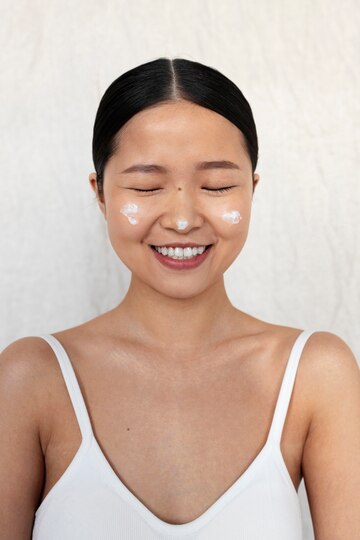Can You get Vitamin D Through a Window?



Vitamin D helps our bodies do many essential things, including keeping our bones, teeth, and muscles healthy. You may have heard that vitamin D is a "sunshine vitamin" because our bodies make it when our skin is exposed to the UVB rays of the sun. While it is possible to get some vitamin D through a window, it is essential to understand the limitations of this method and the potential risks involved.
Vitamin D deficiency is considered a typical concern, especially among people with darker skin, who are at a higher risk due to the extra melanin in their skin. Melanin is a pigment that shields the skin from the sun's damaging ultraviolet (UV) radiation.
One of the primary sources of vitamin D is direct sun exposure, which allows the skin to produce the vitamin when exposed to the sun's UVB radiation. However, window glass blocks these rays, making it more difficult for the body to produce vitamin D through a window.
Despite this, getting some vitamin D through a sunny window is still possible, especially if you are exposed to the sun's rays for extended periods. However, it will also depend on skin colour. If you have lighter skin, you can absorb vitamin D more easily than those with dark skin.
The quantity of vitamin D your body can produce through a window will depend on several factors, including the time of day, the latitude of your location, the sun's angle, and the type of window glass you have. For example, if you live in a sunny spot with a south-facing window, you may get more vitamin D through the window than someone who lives in northern latitudes or has a window facing east or west.
Read more: What is vitamin D? Everything you need to know.
While getting vitamin D through a window may be possible, it is important to be aware of the risks involved. One of the main risks is skin cancer, which has an incidence of 16700 new cases each year in the United Kingdom, according to Cancer Risk UK. The sun's ultraviolet is known to be harmful to the skin, leading to premature ageing and an increased risk of skin cancers. Protecting your skin from the sun's UV rays is vital by wearing sunscreen, seeking shade, and covering it up with protective clothing when you are outside.
You can try this test to measure your vitamin D level.
 What is the significance of vitamin D in our health?
What is the significance of vitamin D in our health?Vitamin D is important for good health and has several health benefits. It facilitates the absorption of calcium throughout the body, which is critical for the upkeep of strong bone health and teeth, which is essential for maintaining healthy bones and teeth. Additionally, vitamin D functions in the body's immunological system, helping protect against infections and other diseases. Lack of vitamin D supplementation has been linked to various health issues, including weak bones, a weak immune system, and an increased risk of certain types of cancer.
Read more: Signs and symptoms of a vitamin D deficiency.
Vitamin D has many health benefits. However, if you take too much vitamin D, it can be harmful.
Nausea
Vomiting
Weakness
Weight loss
Constipation
Confusion
Abdominal pain
Blood in the urine
Calcium deposits in the kidneys
In severe cases, vitamin D toxicity can lead to high blood calcium levels (hypercalcemia), which can cause kidney damage, heart problems, and bone pain.
The recommended daily vitamin D intake varies depending on age, sex, and life stage. The daily upper limit for vitamin D is 400 to 1,000 international units (IU) for adults. However, some people can safely take more, depending on their circumstances and the advice of their healthcare provider. Talk to a health professional if you have concerns about your vitamin D intake.
You must talk to a health professional if you're worried about your vitamin D status. A simple blood test can determine your vitamin D level and help determine if you need to take a supplement or make other lifestyle changes to improve your vitamin D status. While it is possible to get some vitamin D through a window, it is not a reliable source of the vitamin, and it is important to consider other options, such as fortified foods or vitamin D supplements, to ensure that you are getting enough of this essential nutrient.
Egg yolks, some types of fatty fish (such as salmon and mackerel), and certain types of mushrooms are examples of foods that are rich in vitamin D. Other sources of vitamin D include egg yolks and certain types of mushrooms. Milk, orange juice, and cereal are just a few examples of fortified meals that can also be a good source of vitamin D. Vitamin D supplements are also an option for people who cannot get enough vitamin D through their diet or sun exposure. However, talking to your doctor before starting any supplement is important, as getting too much vitamin D can be harmful.
Read more: What is a vitamin D injection?
While it is possible to get vitamin D through a window, it has its limitations. The amount of vitamin D you can generate through a window will depend on various factors, including the time of day, the latitude of your location, and the type of window glass you have. Additionally, potential risks are involved, such as an increased risk of skin cancer, if you only depend on acquiring vitamin D through a window. It is essential to consider other options, such as fortified foods and vitamin D supplements, to ensure you get enough of this crucial nutrient.
Use this reliable test to measure the levels of vitamin D in your blood.








Plus get the inside scoop on our latest content and updates in our monthly newsletter.